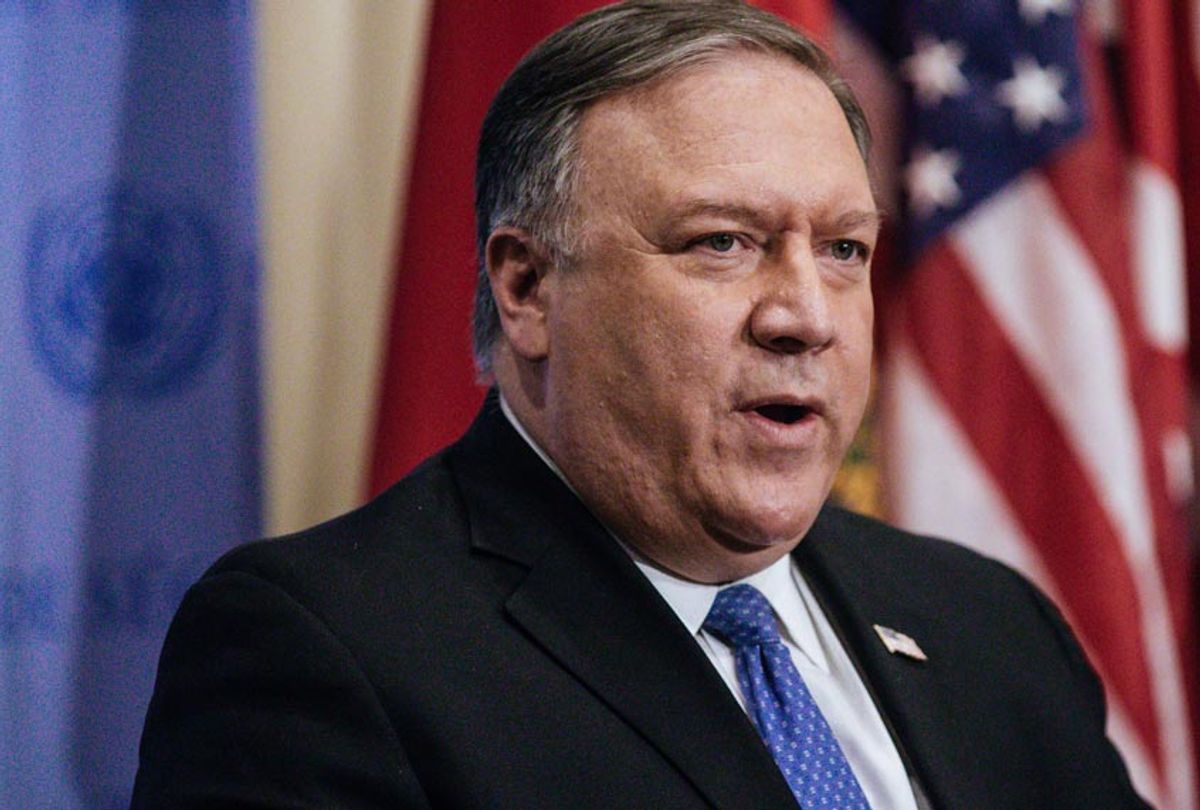Secretary of State Mike Pompeo has publicly claimed that Iran was behind drone attacks on two Saudi Arabian oil facilities, even though Yemen's Iran-backed Houthi rebels have taken responsibility for the bombings.
"Tehran is behind nearly 100 attacks on Saudi Arabia while Rouhani and Zarif pretend to engage in diplomacy. Amid all the calls for de-escalation, Iran has now launched an unprecedented attack on the world’s energy supply. There is no evidence the attacks came from Yemen," Pompeo tweeted on Saturday.
He added, "We call on all nations to publicly and unequivocally condemn Iran’s attacks. The United States will work with our partners and allies to ensure that energy markets remain well supplied and Iran is held accountable for its aggression."
Iranian Foreign Minister Javad Zarif responded to Pompeo on Twitter by denying Iran's alleged involvement in the attacks.
"Having failed at 'max pressure', @SecPompeo's turning to 'max deceit,'" Zarif wrote. "US & its clients are stuck in Yemen because of illusion that weapon superiority will lead to military victory. Blaming Iran won't end disaster. Accepting our April '15 proposal to end war & begin talks may."
The most immediate consequence of Pompeo's assertion is that it has rendered it unlikely that Trump will meet with the Iranian government at any point in the near future, according to The Guardian. Other nations have not supported Pompeo's assertion that the Iranian government was responsible, with the European Union refraining from blaming anyone and the United Kingdom simply called on the Houthi rebels to cease all violence.
The Houthis, for their part, claim that their forces fired the drone without any external help save that from Houthi inside Saudi Arabia. America's foreign policy leaders have been characterizing the Houthis as a proxy for the interests of the Iranian government.
"As it did in Lebanon four decades ago, Iran is using Yemen to increase its status as a regional power," Brian Hook, U.S. special representative for Iran and senior policy adviser to Pompeo, wrote in The Wall Street Journal earlier this month. "Iranian assistance has allowed the Houthis to challenge the authority of the Yemeni government in ways that otherwise wouldn’t have been possible. Iran has provided the Houthis with hundreds of millions of dollars and an arsenal of advanced weaponry."
During an interview with Salon earlier this year, former Secretary of State Madeleine Albright referred to the humanitarian tragedy occurring in Yemen as a result of the policies implemented by the United States, Saudi Arabia and Iran.
"I don’t know why the Yemen thing has not attracted more attention because it really is a huge tragedy. A proxy war between Iran and Saudi Arabia is being played out on the heads, literally, of the Yemenis," Albright told Salon.
She added, "The part that I find truly horrible is that some American military equipment is actually being used in terms of some of the tragedies of shootings and various things that are going on in Yemen. I think that it’s awful that we’re not paying attention to the humanitarian aspect of it."

Shares